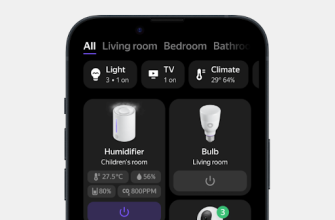A Troubling Trend Behind Quaint Exteriors
Bed-and-breakfast inns in tourist hotspots like the Cotswolds in England or Napa Valley in the United States rely on their reputations. A cozy room, a warm breakfast, and a friendly smile are what keep guests coming back year after year. But recently, many B&B owners have spoken out about a growing problem: fake guest profiles leaving nasty reviews when requests for discounts are turned down.
This isn’t just a random customer unhappy with a cramped room. According to local tourism boards and interviews cited in The Guardian and US travel magazines, these fake accounts often appear right after the B&B refuses a pushy request. The guest (or more accurately, the faker) demands a cheaper rate. If the owner says no, a one-star review appears soon after.
Some owners even receive direct messages telling them that the bad review can be taken down if they change their mind about the discount. It’s a form of mild extortion. Instead of breaking a window, the attacker tries to break your online reputation. It’s sneaky, underhanded, and growing more common.
The Power of Reviews in the Travel Industry
Online reviews can make or break a B&B. Studies show that over 80% of travelers check reviews before booking a stay. Even a small drop in an average rating can result in fewer reservations. A one-star review can scare off potential guests who fear a bad experience.
This is why fake reviews have a strong impact. Unlike a normal disagreement or complaint, these are calculated attacks meant to force an owner to give in. The “guest” never intended to enjoy the stay. They want to control the owner through negative feedback. It’s a game of chicken, with the B&B’s reputation on the line.
Not Just an Isolated Problem
This issue has surfaced in multiple popular tourist areas. While exact numbers are hard to come by, tourism boards report a noticeable rise in complaints from B&B owners. In communities known for their charm and hospitality, the sudden appearance of fake, hurtful reviews stands out.
Local papers and magazines have shared stories of owners who felt helpless. One owner described how they politely refused a discount to a “guest” who claimed to be celebrating a special occasion. The next day, a new account posted a vicious review. Another owner said they got a message offering to “remove” the review if they changed their mind and lowered the price of the room.
The Cost of a Single Star
The difference between a 4.5-star rating and a 4-star rating might seem small, but it can mean a lot in terms of bookings. Some data suggests that even a half-star drop can lower customer interest by as much as 10-15%. When travelers browse booking sites, they often sort by rating. Those at the top enjoy more visibility. A fake review bomb can push a B&B out of that sweet spot, losing it valuable guests.
Owners invest time, money, and love into their properties. They bake homemade pastries, fluff pillows, and offer local tips to make guests feel at home. To see all that effort threatened by someone who never even set foot in their inn is heartbreaking.
Platforms’ Role and Challenges
Catching the Fakes
Review platforms like TripAdvisor, Google, or Booking.com claim to use filtering tools to catch suspicious feedback. But these filters are not perfect. Clever attackers can create multiple accounts, use VPNs, or copy real guest patterns to slip through. Owners might wonder if it’s worth learning how to erase a google review that’s fake, but the process isn’t straightforward. Platforms might remove reviews that violate their rules, but proving a review is fake often takes time.
Slow Responses
Even when owners gather evidence and contact the platform, responses can be slow. Meanwhile, the fake review sits there, influencing potential guests. The lack of a quick fix leaves some owners feeling powerless. It’s like reporting a broken streetlight and waiting weeks for a repair.
Actionable Steps for B&B Owners
Document Everything
If a suspicious “guest” demands a discount, note the date, time, and what they asked for. Save all messages and emails. If a bad review appears soon after, take screenshots. This evidence helps build a strong case when reporting the incident to the platform.
Report the Problem
Contact the review site’s support team. Show them the evidence: the conversation where the “guest” demanded a discount, and the timing of the suspicious review. While it may take time, some platforms do remove clearly fake feedback.
Encourage Genuine Reviews
Ask happy guests to leave honest reviews. When you have a large base of authentic, positive feedback, a single fake review looks suspicious. Potential guests might notice that the negative comment doesn’t fit the pattern. A solid foundation of real praise can help lessen the impact of a phony attack.
Be Transparent and Calm
If you believe a review is fake, consider politely responding to it. Don’t accuse the reviewer of lying outright. Instead, say something like: “We have no record of this stay. We always strive to make guests feel welcome. Please contact us directly if you have any concerns.” Future guests reading this might realize something fishy is going on.
Consider Legal or Professional Help
In extreme cases, if you can identify the attacker or have strong evidence of blackmail, consider speaking with a lawyer. While lawsuits can be expensive and time-consuming, just knowing your rights might provide some peace of mind. Some owners have also hired reputation management professionals to help clean up fake reviews and restore trust.
The Community Fights Back
Some tourist boards and local business associations are aware of this trend. They encourage owners to share their experiences in private groups, exchanging tips and support. By shining a light on these scams, the community can pressure platforms to improve their systems.
Travelers also play a role. Savvy guests know that not all reviews are honest. They learn to spot patterns like multiple one-star reviews posted in a short time. They might notice if the negative comment has no specific details about the room or amenities. As awareness grows, these fake attacks lose some of their power.
Looking Ahead
The fight against fake guest profiles and phony reviews will continue. As long as reviews influence bookings, some people will try to twist them to their advantage. But with more B&B owners speaking out, improved detection tools, and a watchful community, the tide can turn.
Honest business owners and truthful travelers want the same thing: a fair and enjoyable experience. When everyone works together—platforms improving their filters, owners documenting suspicious activity, and travelers staying aware—the charm of a cozy B&B won’t be tarnished by a few rotten apples. In the end, honest hospitality and real customer experiences can shine through, defeating those who try to gain by deception.









